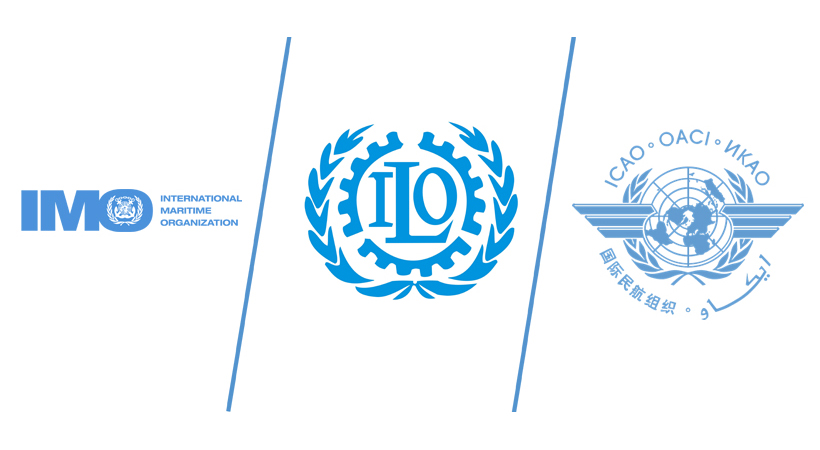ICAO, ILO, IMO press for `key worker’ designations in transportation industry, to enable exemptions from travel restrictions

International Civil Aviation Organization (ICAO) has joined the International Labour Organization (ILO) and the International Maritime Organization (IMO) in issuing a new joint statement on the need to ensure ‘key worker’ designations for the millions of skilled personnel now maintaining essential global air and sea trade capacities.
“Our three organizations seek to ensure that seafarers, marine personnel, fishing vessel personnel, offshore energy sector personnel, aviation personnel, air cargo supply chain personnel, service provider personnel at airports and ports are designated as ‘key workers’, regardless of nationality, to exempt them from travel restrictions, to ensure their access to emergency medical treatment and, if necessary, to facilitate emergency repatriation,” the statement reads.
“We are seeking the support of Governments to facilitate crew changes, operations essential to maintain the global cargo supply chains and operations related to humanitarian aid, medical and relief flights. For humanitarian reasons – and the need to comply with international safety and employment regulations – crew changes cannot be postponed indefinitely.”
The call to world governments comes as COVID-19 restrictions and guidelines continue to curtail travel and restrict border movements, ports and airports are being closed and ships and aircraft are being denied entry, and entire transport hubs are being affected.
The UN agencies are encouraging States to ensure the ‘key worker’ designation for seafarers, marine personnel, fishing vessel personnel, offshore energy sector personnel, aviation personnel, air cargo supply chain personnel, and airport and port services personnel.
Signed on behalf of ICAO Secretary General Dr. Fang Liu, IMO Secretary General Kitack Lim, and ILO Director General Guy Ryder, the joint statement highlights that air transport moved some 4.5 billion passengers and 35% of all global cargo combined by value last year, and that the total number of licensed aviation professionals, which include pilots, air traffic controllers and licensed maintenance technicians, was 887,000 in 2019, according to most recent ICAO data.
It also underscored how more than 80% of global trade by volume is moved by maritime transport and the world’s 2 million seafarers, including much of the global food supply. As early as the middle of June, estimates indicate that 150,000 seafarers a month may require international flights for repatriation or to sign onto new ships.
The Joint Statement includes further details on the specific actions needed by governments and the relevant COVID-19 information and response materials already issued by the respective UN agencies.
“A Joint Statement on designation of seafarers, marine personnel, fishing vessel personnel, offshore energy sector personnel, aviation personnel, air cargo supply chain personnel, and service provider personnel at airports and ports as key workers, and on facilitation of crew changes in ports and airports in the context of the COVID-19 pandemic
The coronavirus disease (COVID-19) pandemic has placed the entire world in an unprecedented situation. To slow the spread of the disease and mitigate its impacts, travel is being curtailed and borders are being closed. Transport hubs are being affected. Some ports and airports are being closed and ships and aircraft denied entry.
More than 80% of global trade by volume is moved by maritime transport, which is the lifeblood of the global economy, and is dependent on the world’s 2 million seafarers who operate the world’s merchant ships. It is estimated that from the middle of June 2020 around 150,000 seafarers a month will require international flights in order to be changed over from the ships that they operate, about half travelling by aircraft for repatriation, the other half joining ships.
Commercial fishing provides a major source of the world’s food, and the crews of fishing vessels must also be periodically changed to avoid fatigue.
Air transport carried about 4.5 billion passengers in 2019, according to preliminary ICAO figures while airfreight represents 35% of the value of goods shipped in all modes combined. The total number of licensed aviation professionals, which include pilots, air traffic controllers and licensed maintenance technicians, was 887,000 in 2019, according to ICAO personnel statistics and forecasts.



